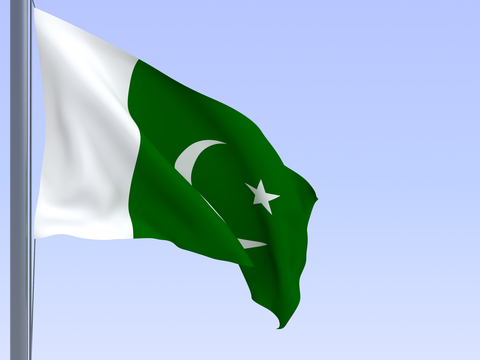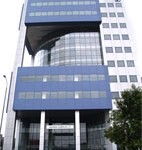
[Updated Oct 2020] A guide to serviced offices and office space for rent in Karachi as well as general information that may be useful if you are thinking of renting offices in the city.
For further offices information or to search office space for rent in Karachi just click. Or contact us for any other office space query.
History & Geography
Pakistan’s largest city is located to the south of the country on the Arabian Sea. The region around the city consists mainly of gently rolling hills, flat plains and rocky cliffs and promontories on the coast. Northwest of the city lies the imposing Manghopir mountain range. The city was founded by the Sindh and Baloch tribes and in its original incarnation relied heavily on the local fishing industry. After the town fell under the control of the Mughal empire it was heavily fortified in order to defend itself from marauding Portuguese raiders. By the early 18th century Karachi had become a thriving trading centre, its merchants conducting business with Muscat and other important cities lying on the Persian Gulf. In 1839 Karachi was captured by the British and came under the saw of the East India Company. Under the British, the city’s port was significantly developed and it became a trading hub for the Indus River. The population of Karachi grew rapidly and the number of Europeans living in the city also swelled. The latter part of the century saw Karachi connected to London by telegraph and to the rest of India by rail. By the end of the century Karachi was the largest wheat exporter in the East and had a plethora of mosques, factories, courthouses and temples. Its harbour was one of the most modern and busy on the continent. When Pakistan became independent in 1947 Karachi was chosen as the capital of the country, though this was later changed to Islamabad. An influx of Muslim refugees from India further swelled the population of the city, adding to its economic power. The 1980s and 90s saw even more refugees flock to Karachi, this time from the Soviet war in Afghanistan and from Iran. Today the city remains one of the most economically and industrially powerful in the region, accounting for much of Pakistan’s international trade and dealings.
Economy
Partly due to its thriving port, Karachi is the economic centre of Pakistan. It makes up a large portion of the country’s revenue and accounts for 79 percent of the country’s sales tax on imports. Furthermore, it accounts for over 50 percent of collections of the Federal Board of Revenue and makes up 30 percent of the country’s manufacturing strength. Karachi’s GDP is approximately 20 percent of Pakistan’s total. The city is the strongest economically in Pakistan with a GDP of USD 78 billion in 2010. Karachi’s extensive industrial base accounts for much of its GDP. Steel, chemicals, heavy machinery and textiles are bulwarks of its economy, as are food, banking and insurance. Recently the World Bank named Karachi as the most business-friendly city in Pakistan. Information, communications technology and electronic media are among the fastest-growing sectors of the economy and outsourcing have also become a major industry for Karachi. The city has a plethora of call centres serving businesses in the west. There are also many construction developments currently underway in the city, in spite of the hard economic times. Traffic congestion, pollution and poverty have come hand in hand with Karachi’s rampant economic success, as they have with many developing countries. Thus Karachi is rated fairly low on the livability index.
Culture
As one of Pakistan’s oldest cities, Karachi has a culture dating back almost 500 years and is the centre of Sindh culture. The traditional languages of the city before its occupation by the British were Sindh and Balochi, though subsequently many Parsi families moved into the city, as well as Goans. Many Urdu speakers moved to Karachi after the partition with India in 1948. Karachi is certainly not on the tourist trail though does have a number of sites interesting to visitors. Of these perhaps the premier one is Rato Kot Fort, located near the Korangi Creek. The Chowkundi Graveyard is a protected monument which has graves from 17th and 18th century featuring intricately carved stonework. Karachi is also home to the National Academy of Performing Arts, the country’s premier school for music and theatre. The city is also known for its thriving underground music scene in which traditional Pakistani music has been blended with modern Western-influenced styles. Recently the city saw its first drama club founded, dubbed The Acting Wheel.
Transportation
Due to its size and infrastructure problems, Karachi suffers badly from traffic congestion. The level of air pollution is very high, though of late new parks have been constructed to combat this. Also, several new highways and expressways have been built to let motorists circumvent vast swathes of the city. Karachi also has two busy train station which link it to the rest of Pakistan, the Karachi Cantonment Railway Station and the Karachi City Station. Currently, there is a project underway to transform the Karachi Circular Railway, a non-operational railway, into a mass transit system for the city. However, this has been delayed until 2013 due to lack of funds. Karachi is served by Jinnah International Airport, the largest airport in Pakistan, which handles more than ten million passengers per year.

Office space to rent in Karachi
Currently, vacancy rates in prime office buildings in Karachi are very high and it is generally a tenant’s market. At the moment the vacancy rate is touching 60 percent. Of late many corporations renting prime office space in the city have moved to smaller premises due to the economy. Because of the oversupply in the city rents have been steadily dropping for the last couple of years.
We carry out a free office space search and our advisory and acquisition services are also free, always. Our Karachi office space brokers and agents are globally regulated by the Royal Institution of Chartered Surveyors (RICS) ensuring the highest standards of commercial property advice and service at all times. We look forward to helping you find the best office space for rent for your business.

The Office Providers are Regulated by the Royal Institution of Chartered Surveyors (RICS)